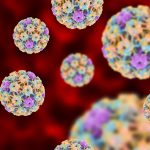The Obesity Challenge | How to Use hCG in Your Practice
Obesity may be the number one antiaging issue in our society simply because it shortens our life span. Children are developing serious diseases at a younger age, which prematurely subjects them to the deterioration of their health and bodies. Diabetes mellitus, asthma, hypertension, sleep apnea, and cancer are just a few examples.1 Obesity also has an emotional influence that can affect self-image and self-confidence, leading to depression and poor food choices, such as “comfort foods.” Societal pressures take a toll on individuals, spanning generations. In addition, obesity is not a local trend; it is a worldwide epidemic and is occurring in younger patients, even toddler age.2 Fortunately, our country is tackling the obesity problem head on. In February of last year, First Lady Michelle Obama launched the Let’s Move! campaign to solve the childhood obesity epidemic, and President Barack Obama established the White House Task Force on Childhood Obesity “to implement an inter-agency plan that details a coordinated strategy, identifies key benchmarks, and outlines an action plan to end the problem of childhood obesity within a generation.”3
However, many medical providers are lagging behind the President when it comes to taking effective strides at defeating obesity. Despite the well-known risks of obesity, providers are not diagnosing obesity and recommending therapy as often as you would think. In a yearlong study4 of almost 10 000 patients seen for general medical visits, screening for obesity was not a routine part of practice. About 25% of patients were identified as obese, and few of these had an effected weight loss plan created by their medical provider.
Medical providers have told patients time and again to diet and exercise to lose weight. Unfortunately, in our fast-paced society, people want immediate results, looking for the “magic pill,” as evidenced by the number of weight loss supplements available over the counter, online, and on TV. Patients also look to clinicians for guidance on weight loss, but healthcare providers end up treating obesity reactively, focusing more on the diet-related diseases like diabetes, hypertension, and high cholesterol level rather than on the cause itself.
Despite our best attempts, most patients fail to change their diet. The problem with obesity in primary care medicine is 2-fold: patients will not change their poor lifestyle, and medical providers do not have much confidence in treating obesity effectively.
The human chorionic gonadotropin (hCG) diet is a great way for patients and providers to work together to promote health and longevity. There is little evidence-based research backing up the use of hCG for weight loss. Some research debunks its effectiveness as a weight loss option.5 However, patients are able to lose weight rapidly and safely on this diet program, and if this effective tool is readily available, why not use it?
The hCG Diet
The use of hCG for weight loss was discovered by British endocrinologist Albert T. W. Simeons. Human chorionic gonadotropin is the hormone produced by the placenta in large amounts during pregnancy. Simeons theorized that hCG programmed the hypothalamus in a low-calorie state to promote mobilization and removal of abnormal excessive fat deposits to protect the developing fetus.
On the traditional hCG diet, you eat only 500 cal/d to lose on average 1 lb/d. The hCG diet plan is restrictive to prevent the fat cells from storing new fat and the new fat from being stored in the adipose tissues. Remember that there are 3 primary sources of fuel for the body, namely, protein, carbohydrates, and fat. Your body will use carbohydrates first, protein second, and fat third. By restricting your intake of carbohydrates and fat, you are forcing your body to use your body’s stored fat first for energy.
In addition to weight loss, there are other benefits to this diet. The hCG diet is essentially a wheat-free, dairy-free, and soy-free diet. Avoiding these common food sensitivities essentially is putting patients on a hypoallergenic low-calorie diet, which is also effectively a great detoxification diet! As a result, most patients end up feeling more energetic and more positive because of the rapid weight loss results and are happy if they lose only 10 lb/mo. In addition to weight loss, many have reported unexpected benefits, such as dramatic improvements in hot flashes, urinary incontinence, or chronic back pain.
How to Tweak the hCG Diet Program
On this very low-calorie diet, the question of safety is always on the minds of patients and medical providers. The hCG diet is successful because weight loss is rapid. However, there is potential for fatigue, hypoglycemia, prolonged ketosis, muscle loss, and constipation. Furthermore, if a patient is taking blood pressure (BP) medication, BP can dramatically lower with rapid weight loss, so BP and laboratory test values should be monitored if the patient is still on a drug regimen. Remember that this diet is not meant for long-term use. To prevent potential problems, here are some clinical pearls based on successes and failures with patients using the hCG diet protocol:
- Constipation is a given on this diet; there is a lot less entering the gastrointestinal tract, so less will come out, which is why you have to drink at least 1 gallon of water per day when on the diet. Water helps with constipation but also increases satiety and metabolism. I usually recommend a fiber supplement (prebiotic) plus probiotic to optimize digestion and to increase bowel movements.
- There is also a potential for fatigue, especially if patients try to exercise more than the recommended daily “light” exercise regimen. Adrenal adaptogens can help regulate cortisol levels to aid with the daily stress of a low-calorie diet. Some may benefit from regular vitamin B12 and B-complex injections and/or nutritional intravenous infusions for energy and weight loss if coupled with chromium and with l-methionine, inositol, and choline.
- Anyone on a restrictive diet of 500 cal/d will lose weight, but weight loss can be from muscle loss. Human chorionic gonadotropin will help target fat, but I also recommend a protein powder supplement.
- Human chorionic gonadotropin hormone is sometimes insufficient to suppress cravings. Some patients will want an appetite suppressant. Short-term use of a phentermine prescription can help jump-start the program. Many patients end up not using it after the first few weeks.
- This diet is geared for nonvegetarians. Vegetarians and vegans can go on a modified diet that allows a small amount of nonfat dairy products or soy each day. As a result, the weight loss is not as rapid and can take twice as long to see the same results as for nonvegetarians. Just let patients know this ahead of time.
- Last, feel free to compromise with patients. Some will be open to the strict diet protocols. Others will refuse this diet based on the number of calories alone but may be willing to try a diet of 1000 cal/d. Weight loss will be slower, but they will lose weight nonetheless.
Conclusion
Research has shown that very low-calorie diets will cause the fastest drop in weight, but they have not been shown to be superior to other diets for long-term weight loss. The key is maintaining a healthy weight. As a result of following the hCG diet, patients find that the most important rules for a healthy lifestyle become established. It is an easy and safe protocol for patients to follow when working with their healthcare provider. Patients can modify the diet as needed, with good results. It is OK to cheat occasionally, but adherence to a diverse well-balanced diet, with reduced simple carbohydrates, and in smaller portions leads to a long healthy life.
 Michael Corsilles, ND, PA-C, is a graduate of Bastyr University. He integrated his naturopathic background with conventional medicine and obtained his physician assistant certification through the MEDEX PA program at the University of Washington. He practices family medicine at Eastside Primary Care and Wellness in Bellevue, WA, blending naturopathic and allopathic medicine. He focuses on vitamin intravenous infusions, weight loss, fibromyalgia, hormonal balancing, and gastrointestinal disease. He can be reached at [email protected].
Michael Corsilles, ND, PA-C, is a graduate of Bastyr University. He integrated his naturopathic background with conventional medicine and obtained his physician assistant certification through the MEDEX PA program at the University of Washington. He practices family medicine at Eastside Primary Care and Wellness in Bellevue, WA, blending naturopathic and allopathic medicine. He focuses on vitamin intravenous infusions, weight loss, fibromyalgia, hormonal balancing, and gastrointestinal disease. He can be reached at [email protected].
References
- Yan LL, Daviglus ML, Liu K, et al. Midlife body mass index and hospitalization and mortality in older age. JAMA. 2006;295(2):190-198.
- Curtin LR, Lamb MM, Flegal KM. Prevalence of high body mass index in US children and adolescents, 2007-2008. JAMA. 2010;303(3):242-249.
- Let’s Move! America’s move to raise a healthier generation of kids. http://www.letsmove.gov/. Accessed January 1, 2011.
- Gramlich LM, Olstad DL, Nasser R, et al. Medical students’ perceptions of nutrition education in Canadian universities. Appl Physiol Nutr Metab. 2010;35(3):336-343.
- Bosch B, Venter I, Stewart RI, Bertram SR. Human chorionic gonadotrophin and weight loss: a double-blind, placebo-controlled trial. S Afr Med J. 1990;77(4):185-189.










